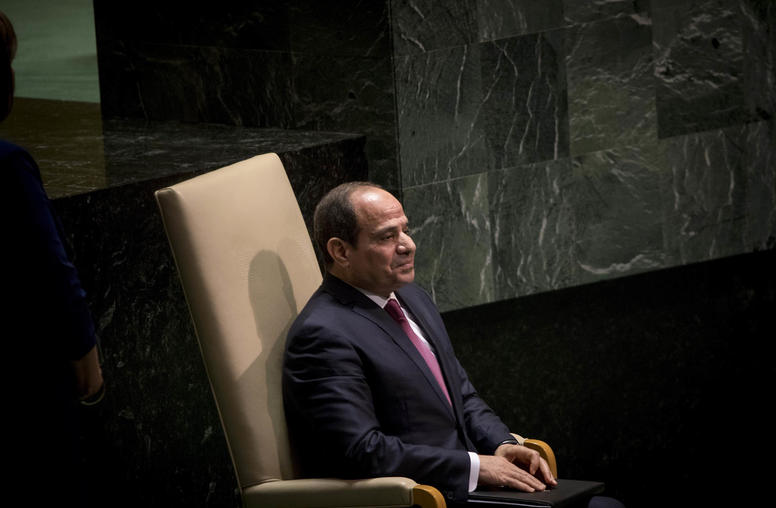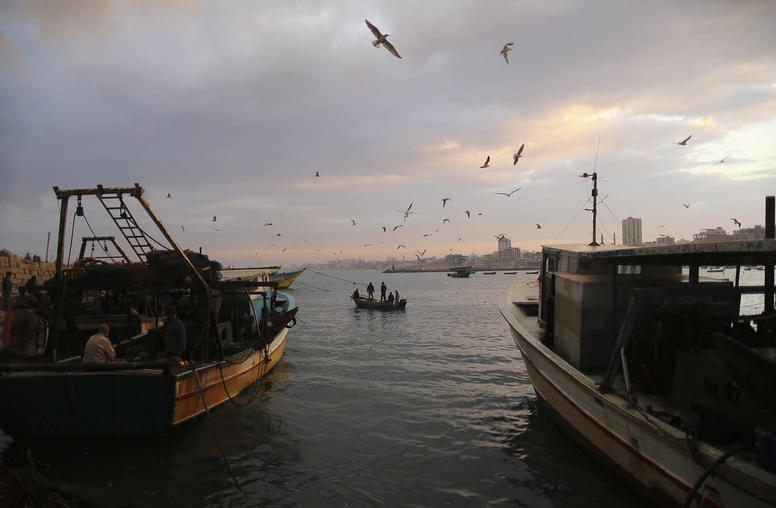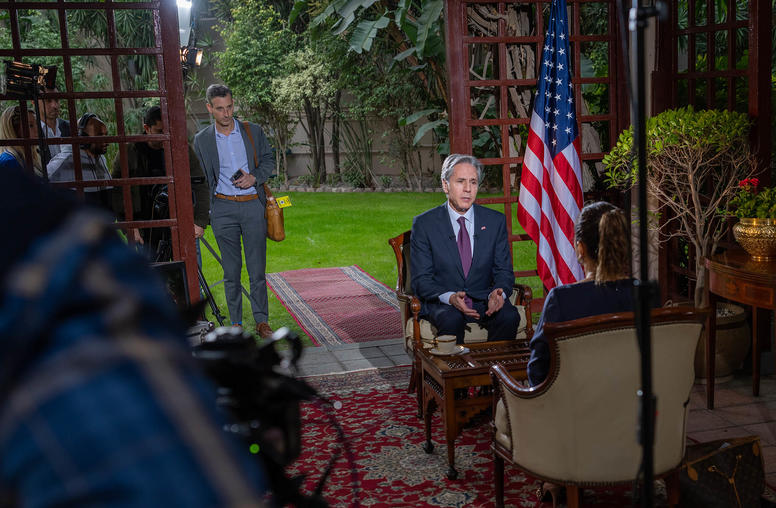Egypt’s Elections
USIP’s Dan Brumberg looks at the results of Egypt’s recent presidential election and what it suggests about the country’s post-conflict progress.

USIP's Dan Brumberg looks at the results of Egypt's recent presidential election and what it suggests about the country's post-conflict progress.
Over the weekend, toppled President Hosni Mubarak was sentenced to life in prison for failing to stop the deaths of hundreds of protesters last year. This comes just after Egypt held its first round of elections to replace Mubarak. What do these two events suggest about post-conflict Egypt?
While the imprisonment of Mubarak and his former interior minister will please many Egyptians, the decision to release six high ranking security officials has infuriated the opposition and the wider populace. This dynamic is, at least for the moment, helping to unite many key elements of the opposition, a factor that will certainly be good news for Mohamed Mursi, who must convince non-Islamists that as president he will press for an inclusive cabinet representing and respecting all key wings of the January 25 revolution. If, on the other hand, the outrage registered in Tahrir Square only yesterday presages a new period of domestic instability, Ahmed Shafiq will use this to make his case for stability and to urge those Egyptians who most fear Islamists that they should go with him. So the court’s decision could cut either way.
The results of the first round of Egyptian elections surprised many people, including the Egyptians themselves. How do you explain the result?
Yes, the results were surprising, and even more so, paradoxical. The two biggest vote getters—thus the two candidates who will got the run-off in mid-June—are Ahmed Shafiq—the former prime minister and avowed ally of the old regime, who got 24 percent of the vote—and Mohamed Mursi--the candidate representing the Muslim Brotherhood and its official political party, the Freedom and Justice Party. And so we are getting about the most polarized outcome you can possibly imagine.
But this result allowed possible significant splits within the non-Muslim Brotherhood opposition. Indeed, the really big story is that if we include Aboul Fotouh—a candidate who has broken away from the Muslim Brotherhood—in the non-Islamist camp, then non-Islamists took 75 percent of the vote. And in major urban centers such as Cairo and Alexandria, non-Islamists scored huge victories. Moreover, Hamdeen Sabahi, a leftist-Nasserist surprised everyone by coming in third, with 22 percent, two percentage points behind Shafiq. Thus, we almost had a run-off between Sabahi and Mursi, with the Mubarak era candidate eliminated.
So what does all this mean for Egypt?
Well, first it means that the Egyptian voter is pretty sophisticated. Given the diverse set of candidates who represented very different positions and agendas, people divided their vote in ways that they probably assumed represented their own views or interests. Moreover, while identity conflicts –Islamist versus secular in particular—have loomed large and dangerously in the political arena, a significant plurality of Egyptians—especially in the urban centers—supported a candidate who ran on a largely economic platform (Sabahi).
But why did we get such a polarized outcome, and one in which a representative of the Mubarak era leadership is now vying to become president? Does that not represent some of a defeat for the "revolutionaries," who helped topple the old regime?
I suppose it does, particularly for young people, both Islamist and non-Islamist. You can argue that the opposition should have galvanized behind one candidate, but given the differences between the four opposition candidates, this kind of unity was simply impossible. So what remains is a polarized field, a choice between the old regime and an Islamist candidate, a veteran Muslim Brotherhood who frightens important groups including non-Islamists, leftists, secular professional and businessmen, and of course the Coptic minority, who represent something like 15 percent of the total population.
Will such fears drive a significant number of voters to back Shafiq, the pro-old regime candidate?
I doubt it. The Muslim Brotherhood may have only received a quarter of the vote in the first round, but my guess is that most of those who voted for Aboul Fotouh will vote for Mursi, while he will also get votes from the two other losing candidates (Sabahi and Amr Moussa). That will probably be enough to squeak through, especially given the Muslim Brotherhood mobilizing capacity, and the fact that not an insignificant number of voters who supported Sabahi and Moussa will probably stay home. And keep in mind that the total participation rate in the first round was only around 46 percent. My guess is that not a few Salafis also stayed away, especially in the rural areas. Because they will come back to vote, especially if their leaders support Mursi, I would guess that Egypt's next president will be from the Muslim Brotherhood.
Could a Shafiq-Mursi contest spark violence and instability? And if so, what can be done to cool things down?
That has already happened. Shafiq's campaign headquarters in Cairo was burned late May, and there have been street protests against the Muslim Brotherhood. But in a second round, the winner can only prevail by appealing to the center—he must win by reassuring at least some of those who voted against him that they have nothing to fear. Mursi is already doing that, trying to court Coptic votes and the votes of secular urban Egyptians. At the same time, liberal and leftist forces have combined to form a "United Coalition" to try to press all candidates to support a "civil state," by which they mean one that will not impose Shariah law and will protect the right of people to believe as they chose. Mursi is trying to engage non-Islamists actors, as he sustains his support among Muslim Brotherhood supporters and also looks to the more conservative "Salafists" for support.
Sounds as if he is trying to make everyone happy, or at least a sufficiently wide spectrum of voters, many of whom don't have much in common. What does this suggest?
This suggests that Egypt has made the transition to real politics pretty fast. Nothing here is that strange. But your question is important, because what Mursi does AFTER he is elected is the key question. Will he be able to form a new government? What will his relationship be with the military? What kind of constitution will he support? And apart from all this, we still must see if he can make a sufficiently strong case to obtain some measure of support from those Egyptians most worried about his occupying the office of the president. It ain't over till it's over.
How does the U.S. government see this process: is there worry about a Mursi victory, if this should indeed be the case?
My sense is that the real worry is about polarization and violence, particularly if the unlikely thing happens and Shafiq wins. As to the scenario in which Mursi winds, my sense is that this U.S. government officials believe that they can work with Mursi, particularly if he tries to reach out and form a wider government inclusive on non-Islamists.



